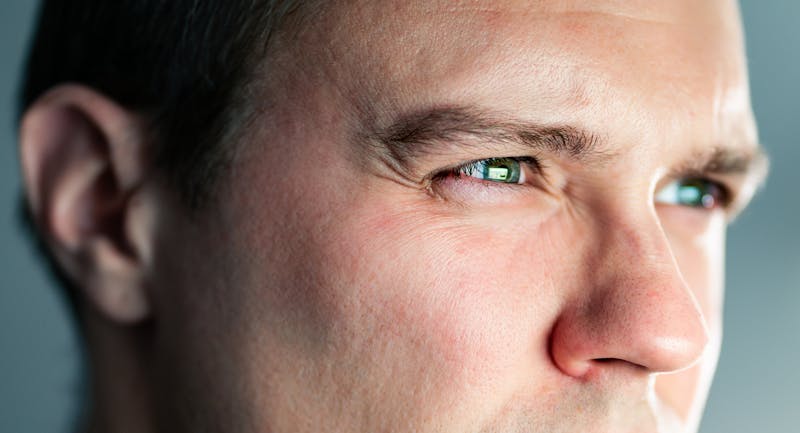
Most people experience dry, irritated eyes from time to time. It can happen after a long day staring at a screen, during allergy season, or in dry environments. These temporary flare-ups often resolve on their own or with simple over-the-counter remedies. However, for many, dryness and discomfort become a persistent problem. This ongoing irritation may be a sign of chronic dry eye disease (DED), a condition that requires medical evaluation and targeted treatment. At Kelly Vision in New York City, board-certified ophthalmologists Dr. James Kelly and Dr. Ashley Brissette specialize in diagnosing and treating dry eye with advanced, evidence-based techniques. Let’s explore what sets occasional dryness apart from chronic dry eye and why early treatment makes all the difference.
Occasional Dry Eye: A Temporary Imbalance
Occasional dry eye typically results from short-term environmental or behavioral triggers. Factors such as windy weather, dehydration, extended screen time, or lack of sleep can temporarily reduce tear production or increase evaporation. In these cases, the tear film, which protects and nourishes the eyes, becomes momentarily unstable.
Symptoms may include:
- Mild burning or stinging
- Temporary redness or grittiness
- Sensitivity to wind or air conditioning
These symptoms usually resolve with rest, hydration, and simple measures like blinking exercises or using lubricating eye drops. However, if these flare-ups become more frequent or severe, it may indicate that the eyes aren’t maintaining proper tear stability over time.
Chronic Dry Eye: A Medical Condition That Needs Expert Care
Chronic dry eye disease (DED) occurs when the eyes consistently fail to produce enough quality tears or when tears evaporate too quickly. It often stems from meibomian gland dysfunction, inflammation, hormonal changes, or autoimmune conditions. Unlike temporary dryness, DED will not improve on its own. It requires professional diagnosis and management to prevent long-term damage to the ocular surface.
Common signs include:
- Persistent dryness, burning, or foreign-body sensation
- Blurred or fluctuating vision
- Light sensitivity
- Watery eyes (a sign of irritation rather than proper lubrication)
Without treatment, chronic dry eye can lead to corneal damage, scarring, and reduced vision quality. Early detection and targeted therapy are essential for long-term relief and protection.
How Kelly Vision Diagnoses and Treats Chronic Dry Eye
At Kelly Vision’s Advanced Dry Eye and Ocular Surface Disease Treatment Center, our team uses state-of-the-art diagnostics to identify the underlying causes of each patient’s condition. Through a comprehensive evaluation, we assess tear production, gland function, and ocular surface health to create a personalized treatment plan.
Our leading-edge treatment options include:
- OptiLIGHT™ Intense Pulsed Light (IPL): FDA-approved light therapy that targets inflammation and improves tear quality.
- OptiLIFT™ with Radiofrequency: Stimulates collagen and enhances meibomian gland function while improving eyelid tone.
- LipiFlow® Thermal Pulsation: Combines heat and gentle massage to unclog glands and restore natural tear production.
- Regenerative and Prescription Therapies: Including autologous serum eye drops, punctal plugs, amniotic membrane therapy, and anti-inflammatory eye drops for lasting comfort.
These treatments not only relieve symptoms but also address the root causes of dryness, restoring a stable, healthy tear film and preserving long-term vision quality.
Experience Expert Dry Eye Care at Kelly Vision
At Kelly Vision, Dr. Kelly and Dr. Brissette provide a uniquely personalized approach to dry eye care. With decades of combined experience and leadership in ophthalmology, they integrate advanced diagnostics, proven treatments, and compassionate care to help patients achieve lasting relief and clear, comfortable vision. Whether your dryness is occasional or chronic, our team can identify the cause and design a treatment plan tailored to your needs. Schedule your consultation today and discover why Kelly Vision is a leading destination for expert dry eye treatment in New York.


